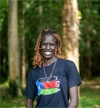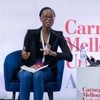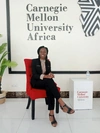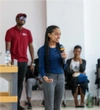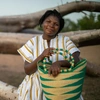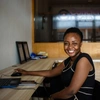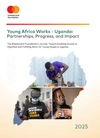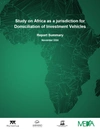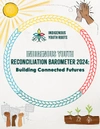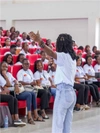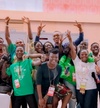The Mastercard Foundation works with visionary organizations to empower young people in Africa and Indigenous youth in Canada to access meaningful, dignified, and fulfilling work.
We seek to enable 30 million young people across Africa to access dignified and fulfilling work by 2030, with a focus on young women, refugees and displaced persons, and people with disabilities.
In Canada, our goal is for education and employment systems to be transformed to enable 100,000 Indigenous young people to access post-secondary education and transition to meaningful livelihoods by 2030, driving lasting impact in their communities and across Canada.

How we are tracking towards our commitment
Learn more about the Foundation-
-
M
Youth-in-work since 2017
-
-
%
of our partners are African-led organizations
-
-
K
Indigenous youth engaged through EleV

Programs
Through our partners, we support more than 1,100 programs across Africa and in Canada.
Explore our programs
Countries
We are currently working in Canada and in 37 countries across Africa. The Foundation has seven offices in Africa and an office in Canada.
Where we work
Focus Areas
We focus on leading sectors for youth employment, including education, agriculture, and the digital economy.
Learn moreResearch: What We Have Learned
Together with our partners, our research elevates the voices of diverse youth by spotlighting their lived experiences and viewpoints, particularly those of young women, youth with disabilities, and refugees and displaced persons.
-
Young Africa Works – Uganda: Partnerships, Progress, and Impact
Education and Transitions Uganda -
Study on Africa as a Jurisdiction for Domiciliation of Investment Vehicles
Ghana, Ethiopia, Uganda, Kenya, Togo, Rwanda, Senegal, Morocco, South Africa, Côte d’Ivoire, Nigeria -
Indigenous Youth Roots: Indigenous Youth Reconciliation Barometer 2024
Education and Transitions Canada -
The Mastercard Foundation Scholars Program At CAMFED Ghana: Celebrating A Decade Of Impact
Education and Transitions
Empowering young voices

Transcending Boundaries Podcast
A new podcast hosted by Reeta Roy will take you on an enlightening journey into the heart of values-based leadership.
Listen now
AI for All: African Youth Voices Shaping the Future
At the Global AI Summit on Africa April 3-4, 2025, in Kigali, Rwanda, Mastercard Foundation co-hosted a youth-led panel to discuss AI opportunities and challenges in Africa.
Learn more
Learn More About Our Programs
Our programming approach is rooted in co-creation and understanding young people's aspirations, needs, and realities. We focus our efforts on areas where they can have the most equitable and sustainable impact at scale.
View all programsLatest from the Mastercard Foundation
-
Mastercard Foundation And UNHCR Launch Historic Partnership To Transform Education And Livelihoods For More Than 500,000 Refugees And Displaced Youth In Africa
-
New Indigenous Land Stewardship Degree Will Prepare The Next Generation Of Land Protectors To Restore Ecosystems And Take Action On Climate Change
-
The Mastercard Foundation And Kifiya Financial Technology Honour Over 100 Graduates Of SAFEE Program, Specializing In AI And Data Science
-
Five Years Of Impact: Youth And Partners Commemorate MOYESH Programme’s Transformative Journey With icipe And The Mastercard Foundation
-
Global Leaders Seek To Inspire The Next Generation Of Changemakers Through Candid Conversations About Their Lives and Careers
-
Key Stakeholders In Uganda Call For Greater Investment In Young Entrepreneurs
-
Investing in Government Data Systems to Drive Decision Making
-
Opinion: Africa's AI Future Hinges On Youth Investment
-
The Mastercard Foundation Fund for Alumni Start-ups in Transition (FAST) Program
-
Indigenous Women Rise
-
Request For Expression Of Interest: Gender And Inclusion Technical Partner For The Kenya Country Program
-
2025 Mastercard Foundation EdTech Fellowship Applications



